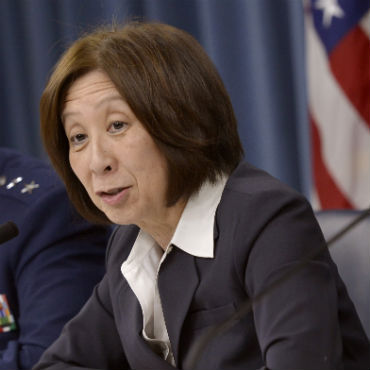DOD expects to add nine commercial cloud providers

CIO Teri Takai said four companies are currently approved to run cloud services for the military, though only one has been publicly disclosed.

Pentagon CIO Teri Takai said the Defense Department plans to move aggressively on cloud utilization.
Nine commercial cloud companies are in the pipeline to provide services to the Department of Defense, CIO Teri Takai told a House Armed Services subcommittee, part of an “aggressive process to move forward on utilization of commercial cloud services” at the Pentagon.
Currently, Takai said, four companies are approved to run cloud services for the military. Only Autonomics has been publicly disclosed as a DOD cloud provider authorized to handle private, non-classified information. FCW has reported that Amazon Web Services and CGI Federal were nearing certification at the same security levels as Autonomics. (UPDATE 3/18: The office of the CIO has confirmed that in addition to Autonomic, CGI Federal IaaS, Amazon’s AWS Government Community Cloud and AWS East/West US Public Cloud are approved for level 1 and 2 data.)
Expanding the availability of commercial cloud is part of the overall Joint Information Environment strategy, a plan to put Defense Department networks on a more unified footing, with a single security architecture. So far, the department has moved cautiously, imposing additional requirements on top of the established FedRAMP cloud authorization program.
The challenge, Takai told the Intelligence, Emerging Threats and Capabilities Subcommittee on March 12, is to make sure providers can meet security requirements while also ensuring that Cyber Command maintains visibility into commercial clouds once they are operationalized on DOD networks, allowing military cybersecurity forces to monitor and defend against intrusions.
There is an additional group of pilot programs that haven't yet begun the FedRAMP cloud security certification process. "Before we put them through the process, we want to see how they're going to operate in our environment," Takai said.
Overall, Takai said, the department is putting a security model in place, with one set of requirements for hosting non-classified information, with security requirements escalating for higher levels of classification. But once a commercial cloud provider is cleared for high levels of classification, it could be "used by any component in DOD," she said.



